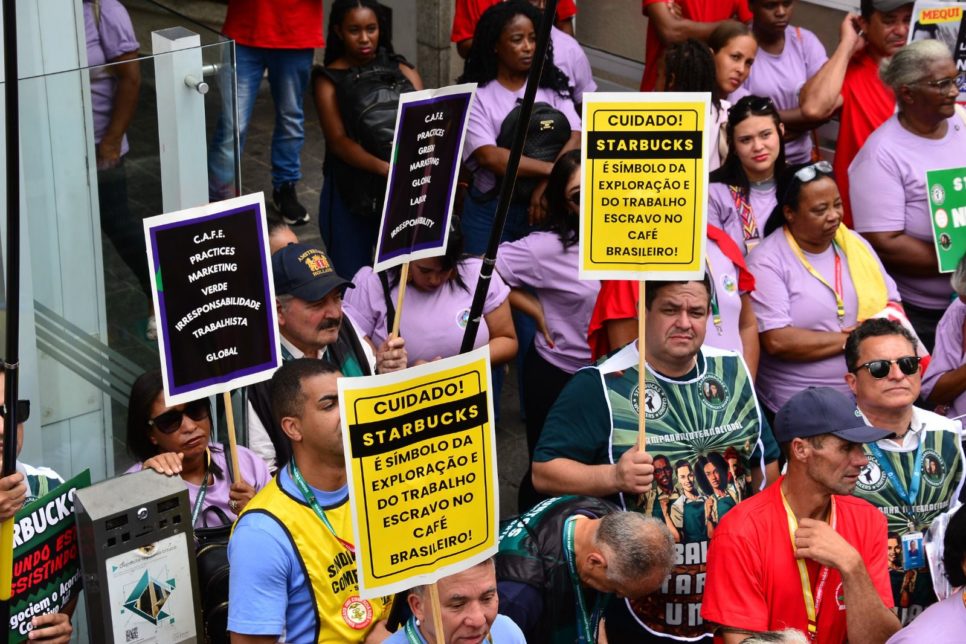Overview of the 161st session of OAS hearings
Events were marked by complaints of killings in prisons and torture in youth detention centers in Brazil

Between March 15 and 22, the 161st session of public hearings organized by the IACHR (Inter-American Commission on Human Rights) of the OAS (Organization of American States) was held in Washington, DC.
The nearly 70 conferences – which also included working meetings with representatives of States, civil society organizations and experts – permitted the IACHR to work on the analysis of petitions, cases and precautionary measures already pending in the Commission and allowed new complaints of violations to be submitted.
In the wake of the killings that left 126 inmates dead in various prisons across the country, dozens of national and international human rights organizations took advantage of the occasion to denounce the failure of the Brazilian prison system.
Read more
Déjà vu
In the hearing entitled “Denouncing mass incarceration, mistreatment and torture in the Brazilian prison system”, the representatives of the petitioning organizations, among them Conectas, criticized Brazil’s policy of mass incarceration and the daily occurrence of violence by government agents against detainees, and they condemned the actions of the government in response to the serious wave of violence that swept through prisons in the north of the country in January.
“Besides the public statements that warrant condemnation again in this Commission and in the presence of representatives of the Brazilian State, the government, sixteen days after the killings started, announced a series of measures to supposedly respond to the massacres. However, they are administrative measures and they could lead to even more rights violations,” said Rafael Custódio, coordinator of the Justice program at Conectas.
Click here to read the statement
Custódio mentioned the statements by President Michel Temer, who on social media described the killings in Manaus as an “accident”; by the Amazonas state governor, José Melo, who said that “there were no saints” among the dead; and by the then national youth secretary, Bruno Julio: “there should be more killings. There should be a massacre per week”.
The organizations also denounced the systematic use of pre-trial detention, with these detainees representing 41% of the entire prison population according to data from December 2014 from the Ministry of Justice.
In response, the general director of Depen (National Prison Department), Marco Antônio Severo Silva, denied that Brazil has a mass incarceration policy and stated that the sharp rise in the number of people in prison is the direct result of “a significant increase in crime in the country”.
“Brazil has the world’s fourth largest prison population, in absolute numbers. This situation is not difficult to understand, given that Brazil has the world’s fifth largest population,” said the director of Depen.
The justifications of the representatives of the Brazilian State, however, did not convince Commissioner James Cavallaro, who identified in both the controversial public statements made by officials and in the government’s attitude to the seriousness of the prison situation following the killings a repetition of the Carandiru prison massacre, which occurred 25 years ago. “I’ve got a feeling of ‘déjà vu’!” exclaimed Cavallaro.
Young offenders
In another hearing, representatives of 26 organizations denounced the practice of torture in Brazil’s youth detention centers and the legislation pending in Congress to reduce the age of criminal responsibility from 18 to 16 and to increase maximum sentences.
Dillyane Ribeiro, legal advisor to Cedeca-CE (Center for the Defense of Children and Adolescents in the state of Ceará), spoke about the precautionary measures already issued by the IACHR against the states of Ceará, São Paulo and Espírito Santo concerning complaints of violations against young offenders.
Click here to read the statement
“Inside the youth detention centers [in these states], torture is practiced by staff with batons and, in the case of Espírito Santo and Rio de Janeiro, with the use of non-lethal weapons, such as pepper spray. There has been a growing militarization of these staff, who consider that they work in the field of public security, like prison guards, and not in youth rehabilitation,” said Ribeiro.
Shielded torture
Conectas also presented, at a side event to the public hearings, data from a recent study conducted by the organization on custody hearings in São Paulo.
The study “Shielded Torture”, which monitored the custody hearings held in the Criminal Courthouse of Barra Funda between July 2015 and May 2016, analyzed 393 cases in which detainees brought before a judge shortly after their arrest showed marks of physical aggression. The publication shed light on the negligence demonstrated by the representatives of the Judiciary who work in the custody hearings.
Click here to read the executive summary of the research






